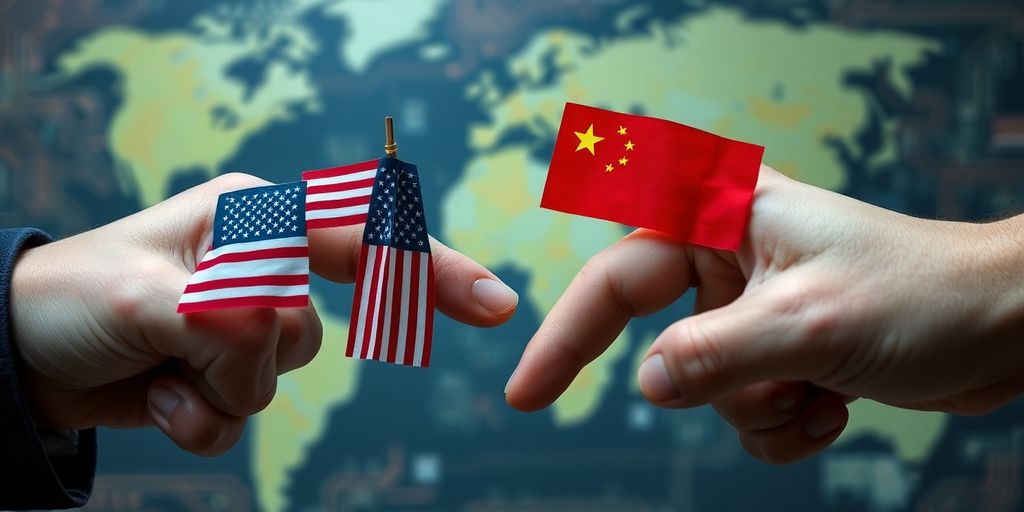The United States has halted exports of critical technologies, including jet engine components, semiconductors, and design software, to China. This move, announced by the Trump administration, escalates trade tensions and is a direct response to China’s recent restrictions on critical mineral exports to the U.S., pushing both nations closer to a full-blown supply chain conflict.
Escalating Trade Tensions
This latest action by the Trump administration signifies a significant escalation in the ongoing trade dispute between the U.S. and China. The decision to suspend technology exports comes after China limited shipments of vital minerals, which are crucial for various American industries, including automotive, aerospace, and semiconductor manufacturing. This tit-for-tat approach highlights a growing "supply chain warfare" as both economic superpowers leverage their control over essential components.
Impact on Key Industries
The new U.S. restrictions are expected to have far-reaching implications for companies globally that rely on foreign technologies. Industries particularly affected include:
- Aerospace: The suspension impacts companies like COMAC, China’s state-owned aerospace manufacturer, which relies heavily on U.S. and European suppliers for components of its C919 aircraft, including engines and control systems.
- Semiconductors: Exports of software used to design computer chips, from companies such as Cadence, Synopsys, and Siemens, have been paused. This further complicates China’s efforts to develop its own advanced chip technology, which remains dependent on foreign software and machinery.
Key Takeaways
- The U.S. action is a direct response to China’s recent restrictions on critical mineral exports.
- This move pushes the U.S. and China closer to a "supply chain warfare."
- The restrictions affect critical U.S. technologies, including jet engine components, semiconductors, and chip design software.
- The C919 aircraft, a Chinese-made passenger plane, relies on U.S. and European parts.
- China remains dependent on foreign technology for advanced chip manufacturing.
Broader Implications
This development further complicates efforts to resolve the broader trade conflict, which saw both nations agree to a 90-day tariff reduction period just weeks prior. Despite Treasury Secretary Scott Bessent’s earlier statement that neither side desired a "decoupling," the administration’s actions, including Secretary of State Marco Rubio’s announcement of visa revocations for certain Chinese students, suggest a continued punitive approach towards Beijing. Both the U.S. and China are increasingly viewing each other as unreliable sources of critical products, leading to a global re-evaluation of supply chain dependencies.
Sources
- U.S. Pauses Exports of Airplane and Semiconductor Technology to China, The New York Times.

Founder Dinis Guarda
IntelligentHQ Your New Business Network.
IntelligentHQ is a Business network and an expert source for finance, capital markets and intelligence for thousands of global business professionals, startups, and companies.
We exist at the point of intersection between technology, social media, finance and innovation.
IntelligentHQ leverages innovation and scale of social digital technology, analytics, news, and distribution to create an unparalleled, full digital medium and social business networks spectrum.
IntelligentHQ is working hard, to become a trusted, and indispensable source of business news and analytics, within financial services and its associated supply chains and ecosystems











